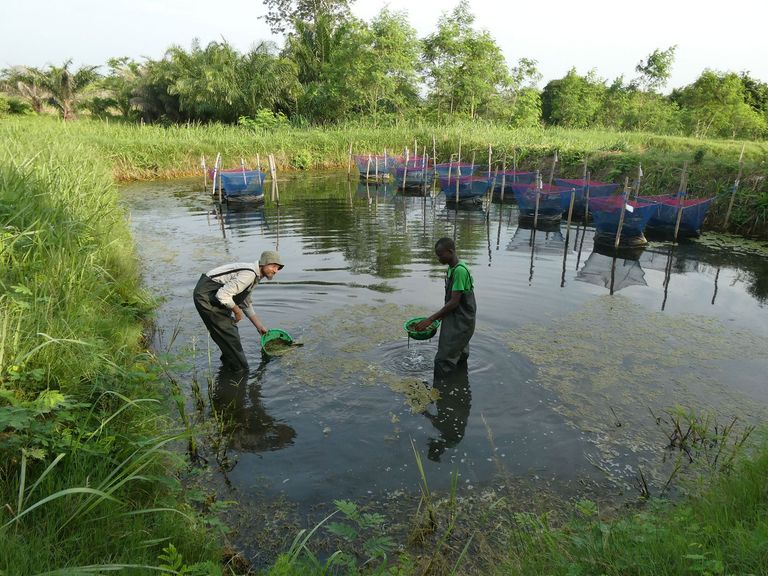Students in “the field”: Decolonizing applied research collaborations. Discussion of experiences and practices
Heure
Online Workshop Series 2023

Organiser: Dominique Guenat (HAFL Hugo P. Cecchini Institute)
Based at the Bern University of Applied Sciences, School of Agricultural, Forest and Food Sciences (BFH-HAFL) in Zollikofen, the HAFL Hugo P. Cecchini Institute is a competence center active in developing and transition countries. For many decades, a significant number of BSc and MSc level students in agricultural, forest and food sciences at BFH-HAFL have been conducting extended periods of field research in low- and middle-income countries (LMIC) across Africa, Asia, Latin America and Eastern Europe.
Before their field research abroad, most students will have already come in touch with or be of a certain opinion about the issue of decolonization – based on their own experiences from having travelled, lived, or originating from a LMIC.
Preparation phase:
An educational and applied research institution has an important role to play in adequately preparing students on matters concerning a potential career in development cooperation or research for development, and therefore particularly also on the highly relevant issue of decolonialization. However, this is a very complex and difficult subject and task. What are best practices? How are we currently dealing with the subject? What are other institutions doing in this respect? What should we change in our current practices?
Accompanying phase:
During their stay abroad, the students make their own experiences – how can we (partly online) and our partners in the host country best support them to discuss their experiences, questions and challenges?
Institutional learning phase:
After students return from their field research assignments, how should the topic of decolonization be addressed while sharing experiences after a longer stay abroad? How can our institution learn from those experiences as well as those from our partner organizations which hosted the students? What are the key messages and lessons learnt that we should then transmit to the next generation of students, but also to the staff involved in North-South research partnerships? Appreciating and processing those experiences while also remaining at the forefront of the societal and scientific discourse on decolonization is an essential requirement for an educational institution such as BFH-HAFL – in order for our students, partner organizations and other stakeholders to acknowledge that we retain sector thought leadership.
Objectives:
Sharing experiences, discuss best practices, contribute to the debate in an open and participatory way, identifying challenges and opportunities, support the decolonization of current academic studies and collaborations.
During this workshop we learn from different institutions how they accompany students in field research in LMICs. These presentations will be followed by a discussion on good practices and ways forward.
Online Workshop Series 2023: Decolonizing Swiss Research Collaborations
- Reflective steps to unbundle decolonization - answering difficult questions
- Students in “the field”: Decolonizing applied research collaborations. Discussion of experiences and practices
- South-North and South-South Collaborations in Medical Genomics Research in Africa
- Our Common Challenge: Moving Beyond Inaction and Irrelevance
- Decolonising Language & Word Choice: The Case for Linguistic Equity
- Open Science as a Means to Decolonize Scientific Publishing and Foster Fairer Research Collaborations
- An interdisciplinary dialogue on ethical considerations and the role of HIC research partnerships in strengthening capacity and stimulating South-South research
- Decolonizing research – an invitation to learn and unlearn from different entry points
- Decolonizing research: from knowledge transfer to knowledge(s) in dialogue
- The Importance of Allyship and Empowerment in the Decolonization of Research Partnerships – A Workshop
- African-European School Dialogue
- Creating and evaluating equitable research partnerships: from inception to impact
- Decolonizing Graduate Careers
